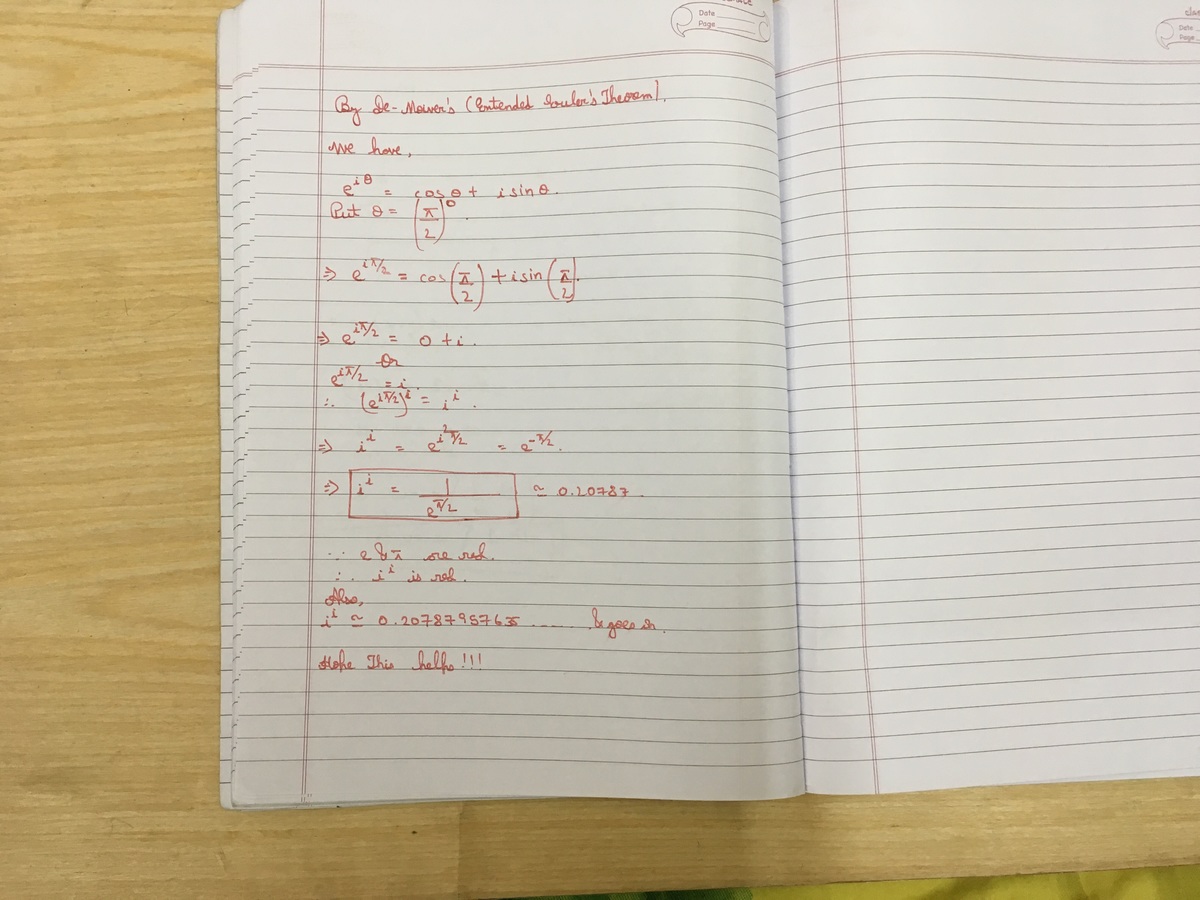Imaginary
Algebra
Level
3
What is ?
Can't be determined
An imaginary number
none of these
A real number
This section requires Javascript.
You are seeing this because something didn't load right. We suggest you, (a) try
refreshing the page, (b) enabling javascript if it is disabled on your browser and,
finally, (c)
loading the
non-javascript version of this page
. We're sorry about the hassle.
The best solution to this is It's proof goes like thi s
s
This is actually what i^i is This may be Ridiculous for begginers but gradually you will learn why is it right. Cheers. Please upvote if it helps !!!